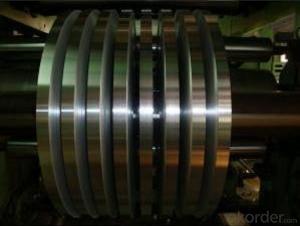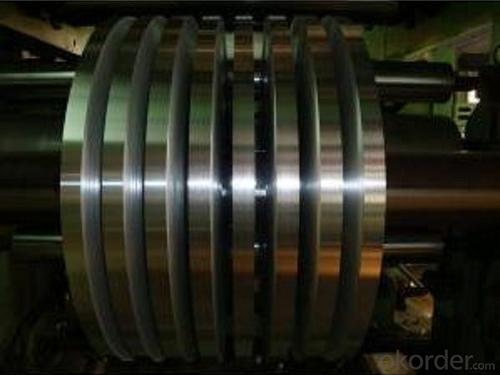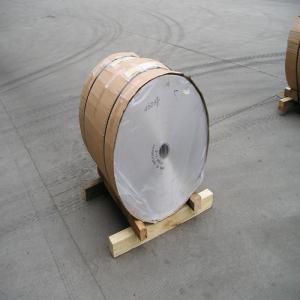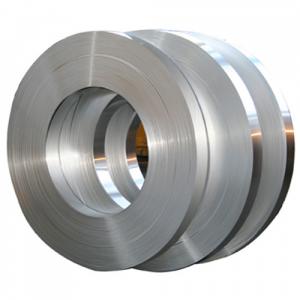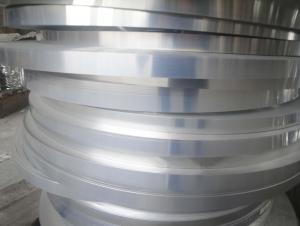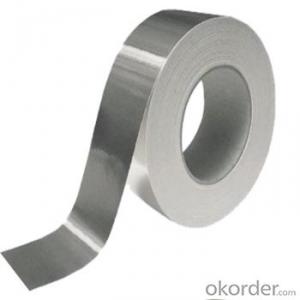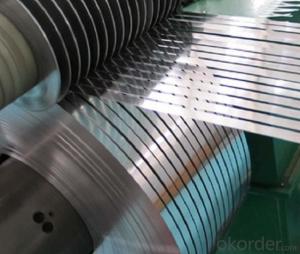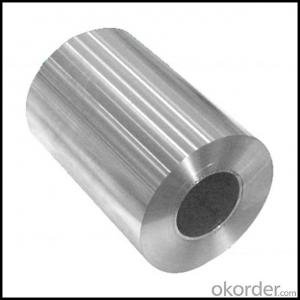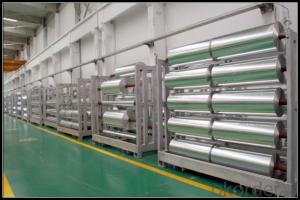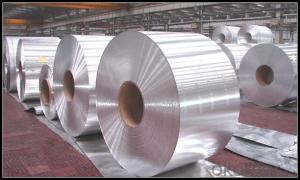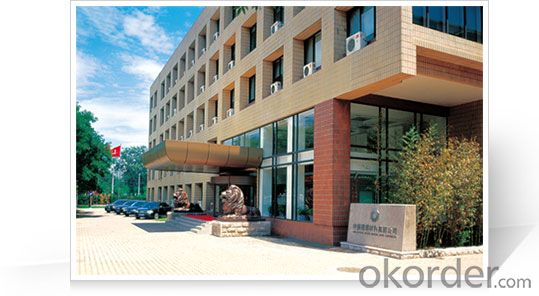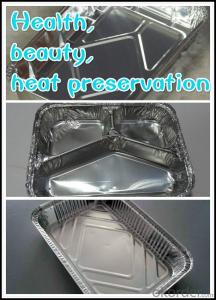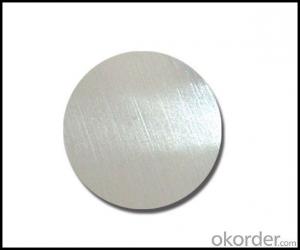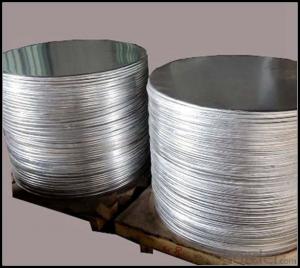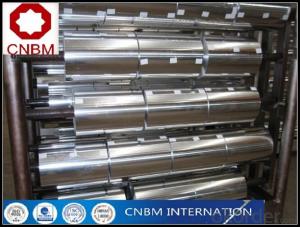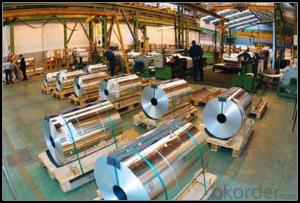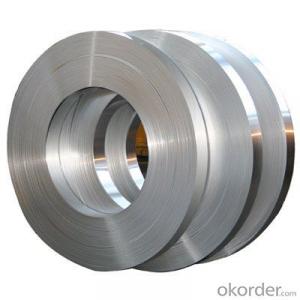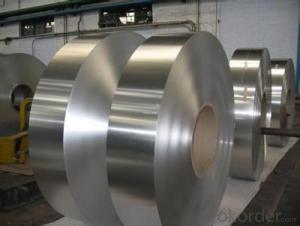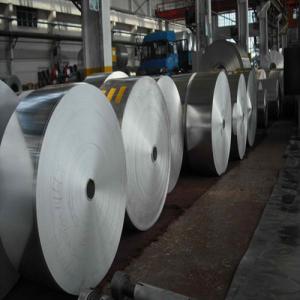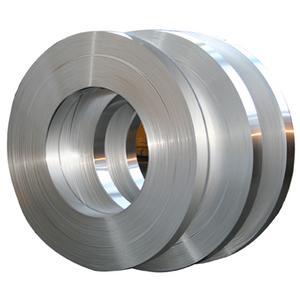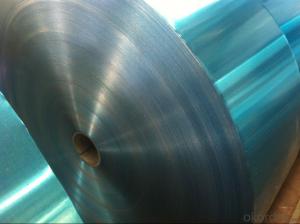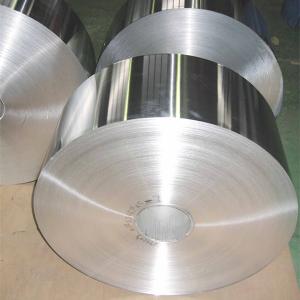Aluminum Carpet Transition Strips for Capacitor Shell - China Supplier
- Loading Port:
- Shanghai
- Payment Terms:
- TT OR LC
- Min Order Qty:
- 5 m.t.
- Supply Capability:
- 5000 m.t./month
OKorder Service Pledge
OKorder Financial Service
You Might Also Like
Aluminum Strip for Capacitor Shell China Supplier
l Product Introduction
The Aluminum Strip is mainly used for refrigerator, cable ,capacitor shell material, steal-protection cover, cable sheathing, composite pipe and tube, water pipe etc. It has the property of deep drawing, high thickness accuracy, and low earring rate, etc.
l Features:
1) Alloy: 1100
2) Temper: O, Hx2, Hx4
3) Thickness: 0.20-0.5mm
4) Width: 150-1200mm
5) Dimensions can be produced according to your specifications
6) Very good elongation and anticorrosion
7) Generally used in industry and architecture industries
8) Suitable for making tableware, receptacles
l Specifications
Product Name | Aluminium Strips for capacitor shell |
Thickness | 0.2mm-3.0mm |
Width | 16mm-2000mm |
Alloy No | 2024,5052,5083,6061,7050,7075 |
Temper | O-H112 T3-T8 |
Surface | Flat |
Packing | Export standard wooden pallets (as per requirements) |
Payment Terms | 30% T/T in advance as deposit,70% balance against the B/L copy or 100% irrevocable L/C at sight |
Minimum Order Quanlity | 5 ton pre size |
Delivery time | 25-30 days after receiving L/C or deposit |
Loading Port | Shanghai |
Remark | Specific requirement of alloy grade,temper or specification can be discussed at your request |
l Packaging & Delivery
Packaging detail: Covering with brown paper and plastic bag then packed with wooden plywood then directly loading into container for transshipment. For the thickness which is more than 1.50mm, one paper interleave into two sheets.
Delivery detail: within 30days
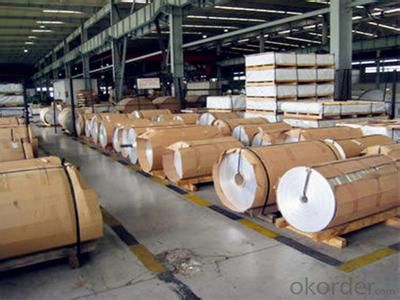
l Company Profile
CNBM International Corporation, China National Building Materials (Group) Corporation, is one of the largest companies in China building material & equipment industry, with 42,800 employees and sales in 2005 of US Dollar 4.395 billion. In 2006, China National Building Material Company Limited was listed on Hong Kong Stock Market with the stock code as 3323.
The business scope of CNBM covers from manufacturing and sales of a series of building materials to scientific research and design, import and export trade. In many of these fields, CNBM is playing the leading role.
l CNBM World Wide

l Products images
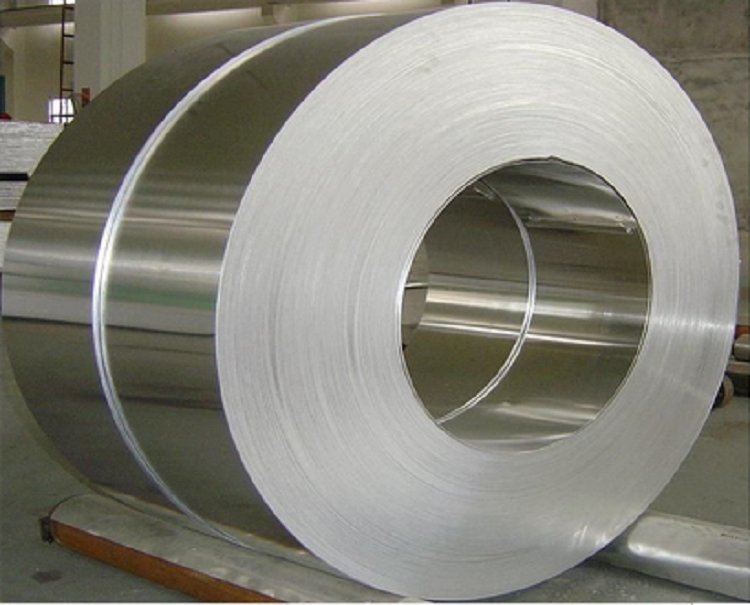
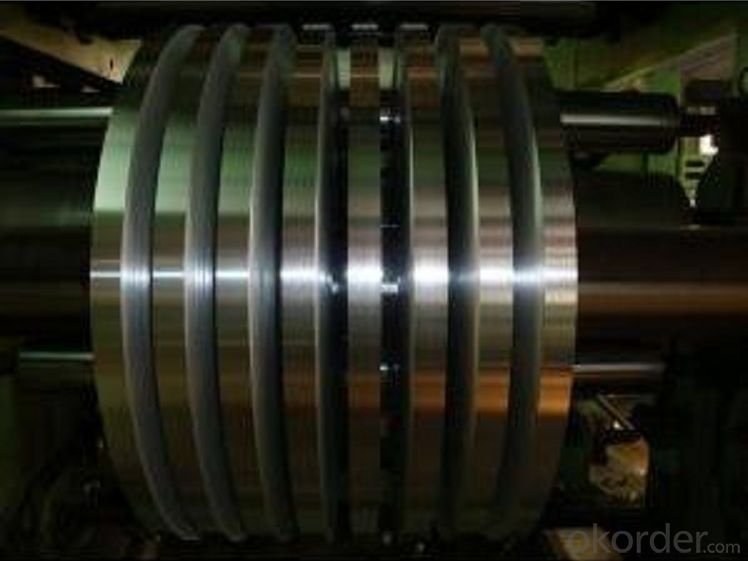
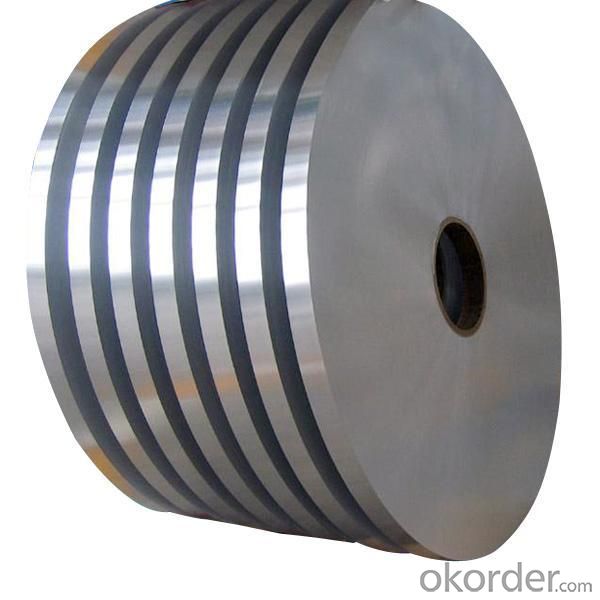
l FAQ
Q: Do you provide free samples?
A: Yes, free samples will be sent to you on freight at destination.
Q: Can I get your latest products catalogue?
A: Yes, it will be sent to you in no time.
Q: What is the MOQ?
A: 5 tons
Q: What are your payment terms?
A: We accept L/C, T/T.
- Q: What types of aluminum strips are more appropriate for industrial purposes?
- <p>Yes, there are specific types of aluminum strips that are more suitable for industrial applications. These include 1100 series aluminum strips, known for their high purity and excellent corrosion resistance. 3003 series strips are also popular for their good formability and weldability, making them ideal for applications like chemical equipment and aircraft parts. Additionally, 5052 series strips are valued for their strength and resistance to marine environments, often used in shipbuilding and offshore structures. Each type is chosen based on the specific needs of the industrial application, such as strength, malleability, and environmental resistance.</p>
- Q: What are the potential dangers or issues that could arise from using nails or screws to attach aluminum strips?
- <p>There are several risks involved with using nails or screws to install aluminum strips. These include damaging the aluminum strip by causing dents or cracks, especially if the material is thin. There's also the risk of stripping the screw hole, which can weaken the hold and cause the strip to come loose. Additionally, if the aluminum strip is not properly secured, it may lead to accidents or injuries due to falling or improper installation. Using the wrong type of fastener can also lead to corrosion or other material compatibility issues. It's crucial to use the appropriate tools and techniques to minimize these risks.</p>
- Q: This question asks for the standard cost range of aluminum strip stock, which is a type of metal material.
- <p>The typical price range for aluminum strip stock can vary significantly based on factors such as grade, thickness, width, and market conditions. As of recent market trends, prices can range from approximately $1.50 to $3.00 per pound for common grades like 1100 or 3003. However, for more specialized grades or custom specifications, the cost can be higher, potentially ranging from $2.00 to $5.00 per pound or more. It's important to note that these prices are subject to change due to fluctuations in the global aluminum market and should be verified with a supplier for the most accurate and current pricing.</p>
- Q: Is it possible to utilize recycled aluminum in a project as an alternative to new raw materials?
- <p>Yes, you can use recycled aluminum in your project instead of new raw materials. Recycled aluminum is not only more environmentally friendly but also often more cost-effective. It requires significantly less energy to produce compared to new aluminum, reducing carbon emissions. Additionally, using recycled aluminum can help conserve natural resources and reduce waste in landfills. However, it's important to consider the quality and purity of the recycled material to ensure it meets the specifications required for your project.</p>
- Q: Is it possible to construct awnings or canopies using aluminum strips?
- <p>Yes, aluminum strips can be used to make awnings or canopies. They are lightweight, durable, and resistant to corrosion, making them suitable for outdoor applications. Aluminum's strength and flexibility allow it to be bent and shaped easily, which is ideal for creating the curved or angled structures often seen in awnings and canopies. However, it's important to ensure that the aluminum is of sufficient gauge to support the weight and withstand environmental stresses. Additionally, proper sealing and treatment are necessary to prevent water damage and maintain the longevity of the structure.</p>
- Q: Which brand of aluminium band for dry transformer?
- Personal feeling 1070 should be better, because a higher proportion of content, electrical conductivity must be better, but at present, the market is indeed everyone's use.
- Q: This question asks for an overview of the steps involved in the manufacturing of aluminum components used in vehicles.
- <p>The production process of automotive aluminum parts typically involves several key steps: material selection, design, casting or forging, machining, heat treatment, surface treatment, and quality control. Aluminum is chosen for its lightweight and high strength properties. The design phase involves creating detailed plans for the part. Casting or forging shapes the aluminum into rough forms. Machining refines these forms to precise specifications. Heat treatment enhances strength and durability. Surface treatments protect against corrosion and wear. Finally, quality control ensures each part meets industry standards before it is used in vehicles.</p>
- Q: What are the certifications or standards that apply to aluminum strips?
- <p>Yes, there are several certifications and standards for aluminum strips. These include ASTM B209, which specifies requirements for aluminum and aluminum alloy sheet and plate, and EN 573, which covers the chemical composition and mechanical properties of aluminum and aluminum alloys. Additionally, there are ISO standards such as ISO 6361 and ISO 6892 that define the requirements for aluminum and aluminum alloys in terms of mechanical properties and chemical composition. These standards ensure the quality and consistency of aluminum strips used in various industries.</p>
- Q: This question asks for a step-by-step guide on how to attach aluminum strips to a roof or wall.
- <p>To install aluminum strips on a roof or wall, follow these steps: 1. Measure and mark the area where the strips will be installed. 2. Clean the surface thoroughly to ensure proper adhesion. 3. Cut the aluminum strips to the required length using a hacksaw or tin snips. 4. Apply a bead of construction adhesive along the top edge of the strip. 5. Press the strip firmly into place, starting from one end and working your way along the surface. 6. Use a level to ensure the strip is straight and secure it with nails or screws at regular intervals. 7. Fill any gaps between the strips and the surface with caulk to create a watertight seal. 8. Finish with a coat of paint or sealant to match the surrounding area and protect the aluminum from weathering. Always follow the manufacturer's instructions for the specific adhesive and sealant products you are using.</p>
- Q: What are the positive impacts on the environment when aluminum strips are used?
- <p>The environmental benefits of using aluminum strips include their recyclability, which reduces waste and conserves resources. Aluminum is highly recyclable, and its recycling process requires significantly less energy compared to producing new aluminum from raw materials. This leads to reduced greenhouse gas emissions and lower energy consumption. Additionally, aluminum strips are lightweight, which can decrease the carbon footprint associated with transportation. They are also corrosion-resistant, reducing the need for maintenance and replacement, and can be used in various applications, such as construction and packaging, to create more sustainable and eco-friendly products.</p>
Send your message to us
Aluminum Carpet Transition Strips for Capacitor Shell - China Supplier
- Loading Port:
- Shanghai
- Payment Terms:
- TT OR LC
- Min Order Qty:
- 5 m.t.
- Supply Capability:
- 5000 m.t./month
OKorder Service Pledge
OKorder Financial Service
Similar products
Hot products
Hot Searches
Related keywords
